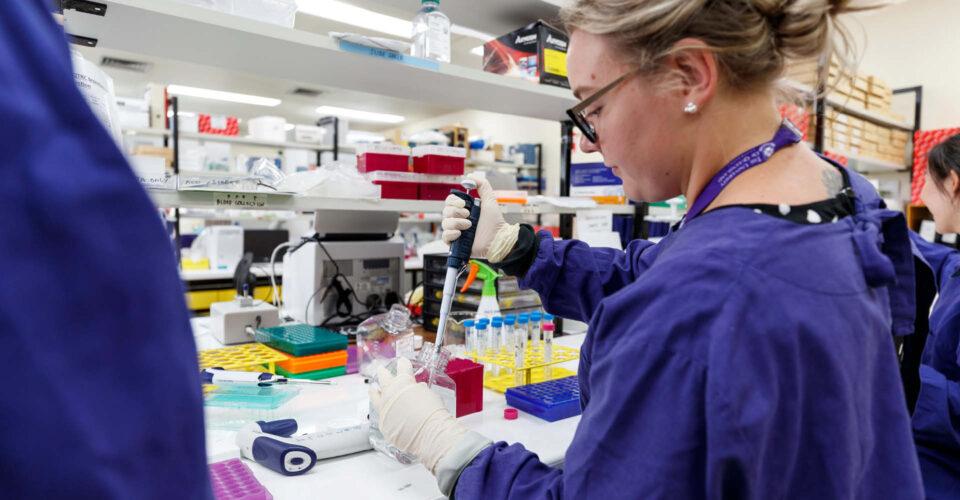Chronic Obstructive Pulmonary Disease (COPD) is a serious condition that affects 1 in 20 Australians over the age of 55. While the mortality rate has decreased since 1970, it is still the fifth largest cause of death in Australia. Patients with COPD often suffer from exacerbations (flare-ups in their condition) mostly attributed to respiratory infections – and every exacerbation increases the risk of death and destroys lung function.
Certain pathogens are responsible for a large portion of exacerbations in COPD patients – however it is not clear exactly which ones. Professor Ian Yang wants to define the most common pathogens (viral, bacterial or fungal), that affect COPD patients at TPCH, so the correct antibiotics are administered and patients recover from these illnesses faster.
In order to do this Professor Ian Yang’s team, including New Investigator Hannah O’Farrell, are testing a new technique called QPCR, which unlike normal culturing, only takes a day to garner results, rather than the usual three. They will be looking at 47 different pathogens in total to really narrow down which pathogens are having a detrimental effect on our population.
By using new genetic techniques for detecting bacteria in COPD exacerbations, identifying these pathogens, in order to improve diagnostic methods for patients and better understanding associated inflammation from infections we will be well on our way to developing the most effective drug therapy for patients.
With that we can greatly reduce the risks and complications from COPD flare ups and give COPD patients a better quality of life.
Support The Common Good here









